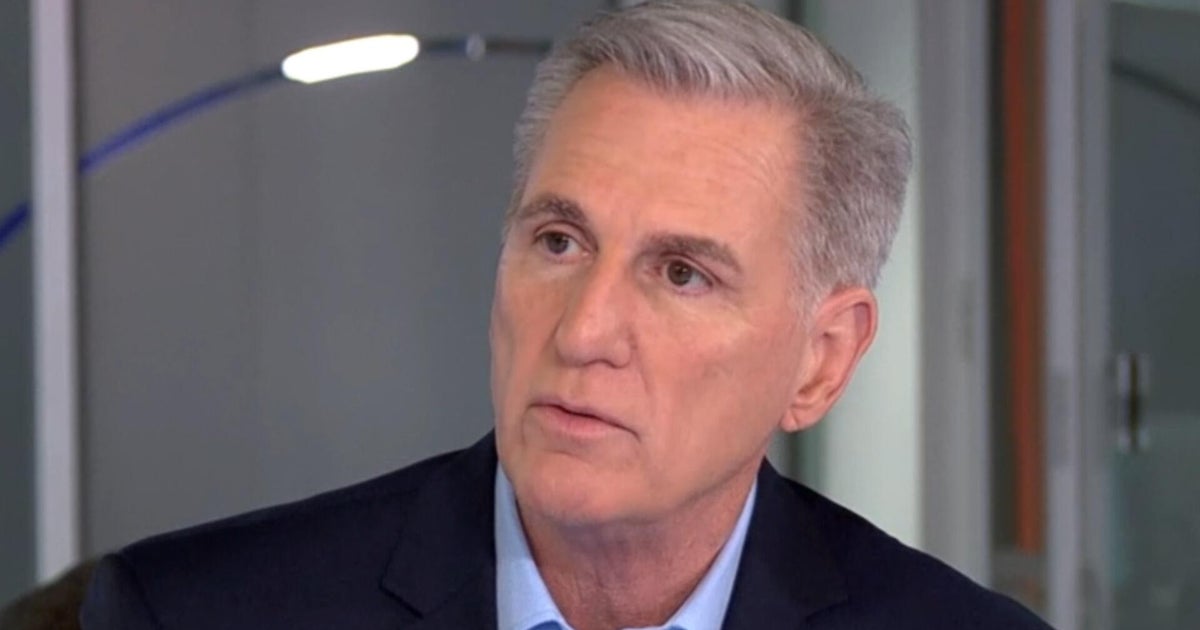U.S. envoy to Afghanistan Zalmay Khalilzad resigns
The chief U.S. envoy to the Taliban, U.S. Ambassador Zalmay Khalilzad, tendered his resignation Monday in a letter sent to Secretary of State Antony Blinken. His departure from the job of special representative for Afghanistan Reconciliation goes into effect on Tuesday. He told Blinken that it was "the right time" to leave, "at a juncture when we are entering a new phase in our Afghanistan policy."
CBS News viewed a copy of the letter in which Khalilzad laid out the work he did in brokering a "conditions-based agreement" between the Taliban and the U.S. to end American military engagement in Afghanistan but also acknowledges that the part of the agreement involving the Taliban and Afghan government "did not go forward as envisaged."
Khalilzad explains in the letter that he was asked to rejoin government in 2018, after the "decision had been made to substantially reduce or end" the economic and military burden of America's longest war so that the U.S. would be able to refocus on domestic priorities and China. While Khalilzad began his work during the Trump administration, he was kept on by the Biden administration which shared the desire to withdraw from Afghanistan and embraced his diplomatic work with the Taliban.
In his October 18 letter, Khalilzad noted that his work during the Trump administration was to forge an agreement that would keep Afghanistan from once again becoming a haven for terrorists. He went on to say that he had negotiated with the Taliban, the Afghan government and a number of countries that were stakeholders to arrive at a conditions-based agreement.
Under the agreement signed in February 2020, the Taliban would not allow al Qaeda or other terrorist groups to attack the U.S. interests or allies. The U.S. also agreed to have the Afghan government free 5,000 prisoners. And the U.S. exacted a promise that the Taliban would work with the Afghan government on a power-sharing agreement and permanent ceasefire.
Both the Trump and Biden administrations had made the political judgment that the American public had lost its will to maintain the fight.
While the Taliban negotiated and talks stalled, its ground forces rapidly advanced. President Biden decided in April to withdraw all U.S. troops by September — a deadline he then shifted to August — despite the failure to broker a peaceful transition of power.
In his resignation letter, Khalilzad implied that the elected Afghan government bore some responsibility for the failure to reach an accord: "they failed to make use of this opportunity to end their 40-year conflict in a constructive spirit and fair compromise."
By early August, the Taliban forces had run Afghan President Ashraf Ghani and his top advisers out of the country. Ghani fled first to Uzbekistan and now is in exile in UAE.
After the collapse of the Afghan government and the withdrawal of U.S. forces, Khalilzad continued to negotiate with the Taliban to secure safe passage of Americans and other high risk persons. That role ends on Tuesday.
Khalilzad said that he was "saddened" for the Afghan people, given the current outcome, and that that he departs the role at a time of change in Afghanistan. He notably said that "[e]ven the Taliban describe themselves as an interim government."
Khalilzad, who is Afghan-American, was also U.S. ambassador to the United Nations, ambassador to Afghanistan and to Iraq, in President George W. Bush's administration.
In a brief statement, Blinken thanked Khalilzad and expressed "gratitude for his decades of service to the American people." In the same statement, the secretary announced that the deputy special representative for Afghanistan, Thomas West, will now fill Khalilzad's role.
As CBS News reported at the start of this month, Khalizad's relationship with Ghani had long been strained, and that rift only widened after the Trump-era deal with the Taliban. It left Ghani without a trusted U.S. official to shepherd him through any theoretical diplomatic process — or at least no one he trusted.




